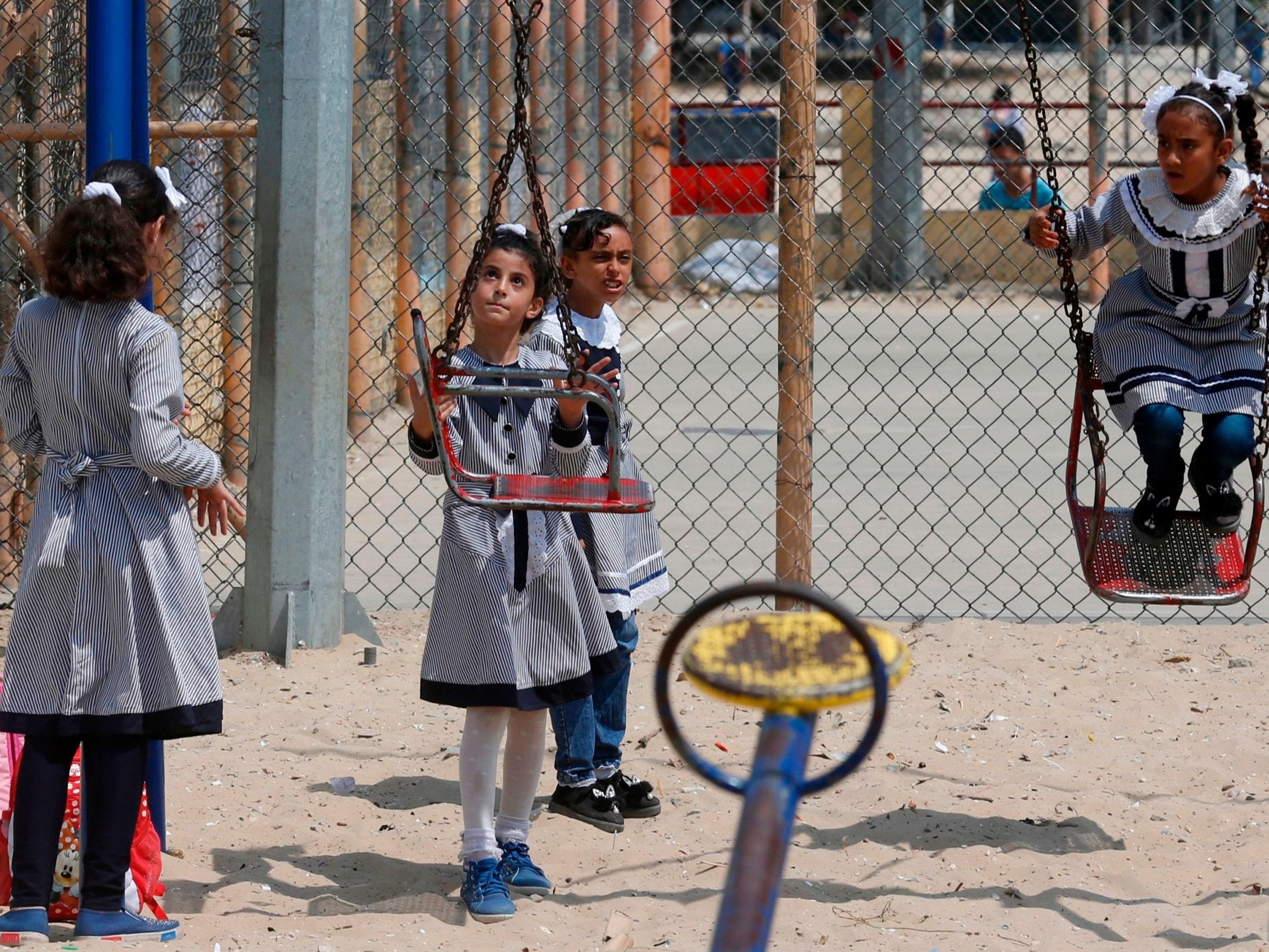US will fuel radicalism in the Middle East by halting Palestinian aid, Jordan says
'Disruption of UNRWA services will have extremely dangerous humanitarian, political, and security implications for refugees and for the whole region,' says foreign minister Ayman Safadi

Your support helps us to tell the story
From reproductive rights to climate change to Big Tech, The Independent is on the ground when the story is developing. Whether it's investigating the financials of Elon Musk's pro-Trump PAC or producing our latest documentary, 'The A Word', which shines a light on the American women fighting for reproductive rights, we know how important it is to parse out the facts from the messaging.
At such a critical moment in US history, we need reporters on the ground. Your donation allows us to keep sending journalists to speak to both sides of the story.
The Independent is trusted by Americans across the entire political spectrum. And unlike many other quality news outlets, we choose not to lock Americans out of our reporting and analysis with paywalls. We believe quality journalism should be available to everyone, paid for by those who can afford it.
Your support makes all the difference.The US decision to end funding for the United Nations agency for Palestinian refugees will fuel radicalism and hinder the prospect of Middle East peace, Jordan's foreign minister has claimed.
Ayman Safadi, said that his country would carrying on trying to find donors to help with the financial burden now facing the United Nations Relief and Works Agency (UNRWA) after the US announced that it would cut $300m (£231m) of planned support for the agency.
“Disruption of UNRWA services will have extremely dangerous humanitarian, political, and security implications for refugees and for the whole region,” Mr Safadi said. “It will consolidate an environment of despair that would ultimately create fertile grounds for further tension.
He added: “Politically it will also further hurt the credibility of peacemaking efforts”.
Jordan holds more than 2 million of the 5 million registered refugees supported by the agency.
Announcing its decision to withdraw the funding, the US State Department described the body as “irredeemably flawed” in its mission.
“Palestinians, wherever they live, deserve better than an endlessly crisis-driven service provision model," State Department spokesperson Heather Nauert said in a statement.
But Adnan Abu Hasna, a media advisor for UNRWA in Gaza, said, "Stopping or cutting aid to UNRWA could really affect UNRWA's operations. We don't think cutting this aid will help stability or pushing the peace process, especially as UNRWA plays a big role in the stability of the region."
UNRWA spokesperson Chris Gunness added that the agency provides health clinics, schooling for 526,000 refugee children across Jordan, Syria, Lebanon, Gaza and the West Bank, and food aid to 1.7 million people.
The agency will now seek more funding from existing donors and look for new sources of income.
Prior to the announcement, the US had been the biggest donor to the agency, and contributed more than $300m (£231m) to the agency in 2017.
It marked the latest controversial decision from Washington related to the Israeil-Palestinian relationship since the Trump administration recognised Jerusalem as the capital of Israel last year and moved the American embassy there.
Mr Safadi indicated during a meeting at the United Nations that his country would do everything it can to make sure the UN agency receives funding and had asked for partners form the European Union, Japan, Sweden, and Turkey to step in and help.
“We will do everything possible to ensure that UNRWA gets the funds it needs to continue offering its services to Palestinian refugees,” Mr Safadi said.
Palestinian leadership also condemned the US act, with a spokesperson for president Mahmoud Abbas saying it is "an attack on the rights of the Palestinian people”.
Join our commenting forum
Join thought-provoking conversations, follow other Independent readers and see their replies
Comments